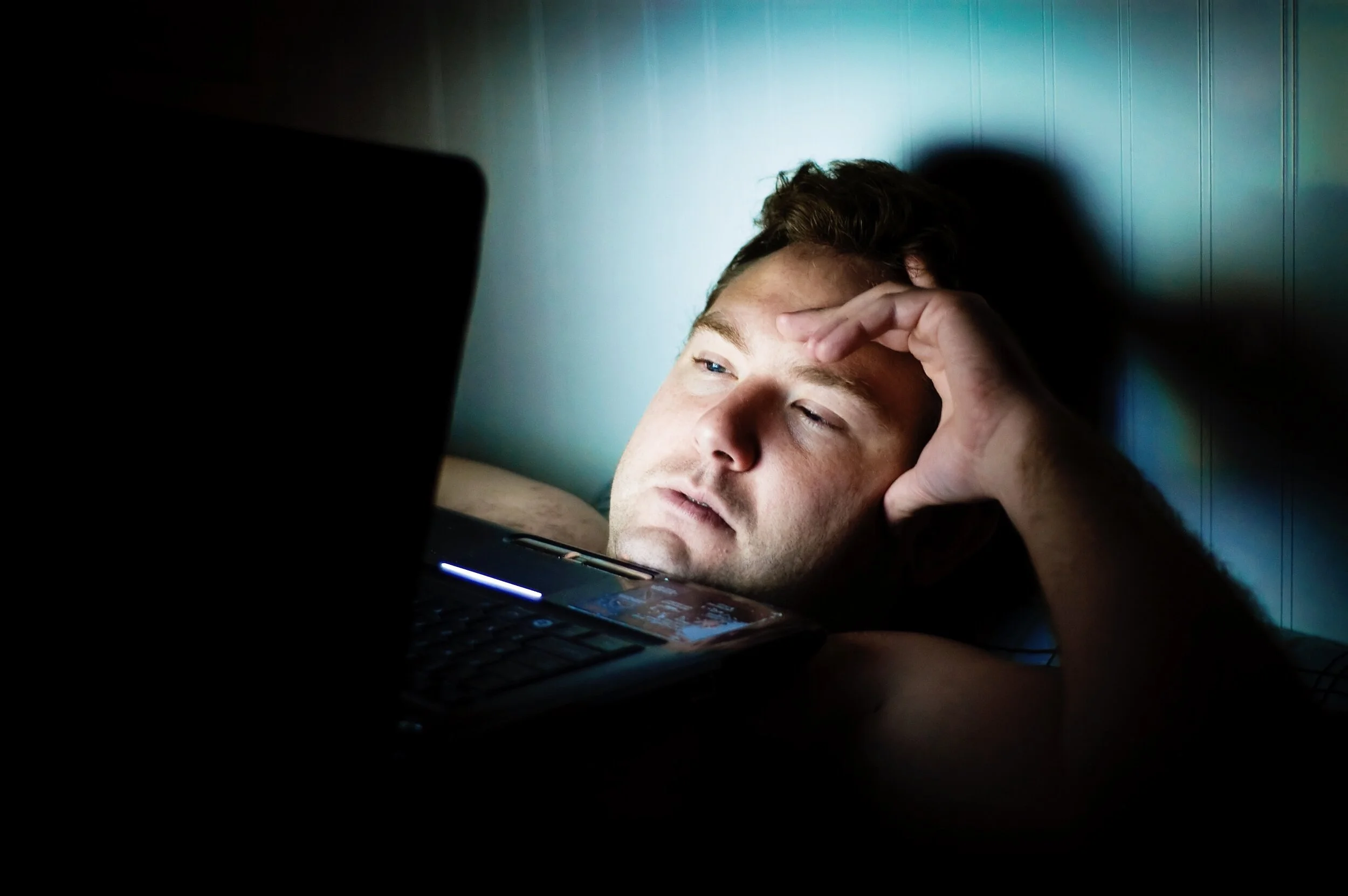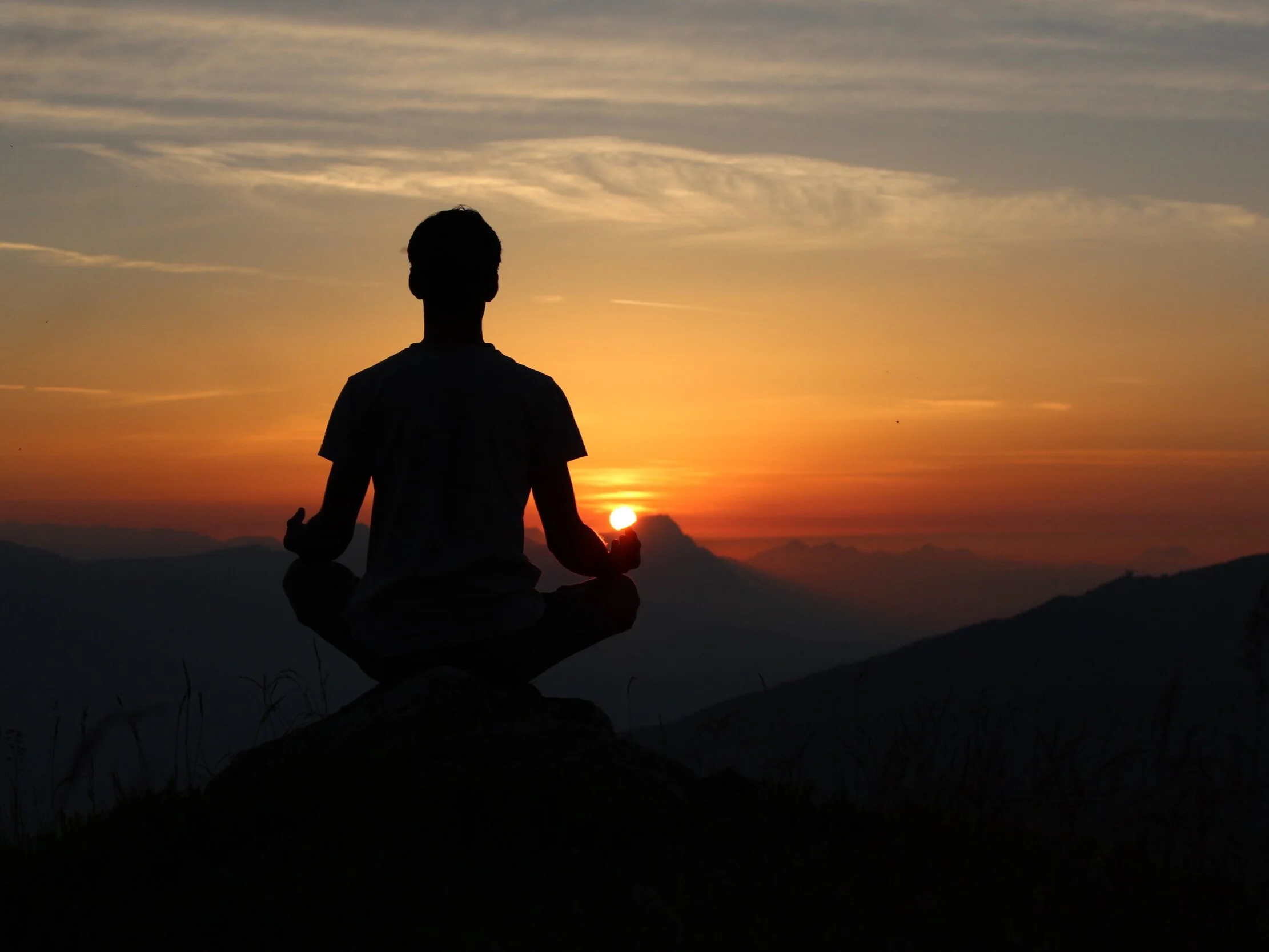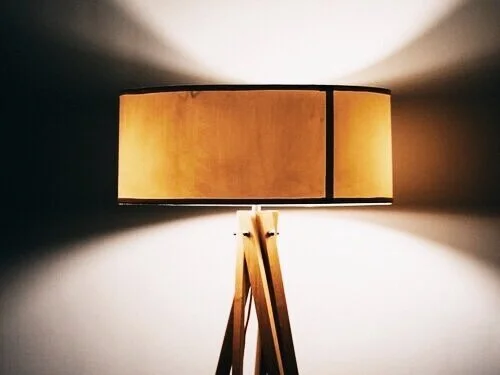
RECENT
Chronobiology Hacks: Optimizing Your Daily Routine Based on Circadian Rhythms
Understanding and aligning our daily routines with our internal clock, known as circadian rhythms, can have profound effects on our health, productivity, and overall well-being. In this article, we will explore the fascinating field of chronobiology and delve into various biohacking strategies to optimize our daily routines based on circadian rhythms.
In our fast-paced modern world, it's easy to lose sight of our body's natural rhythms. However, understanding and aligning our daily routines with our internal clock, known as circadian rhythms, can have profound effects on our health, productivity, and overall well-being. In this article, we will explore the fascinating field of chronobiology and delve into various biohacking strategies to optimize our daily routines based on circadian rhythms.
Understanding Circadian Rhythms
Our bodies are intricately designed to follow a roughly 24-hour cycle, known as circadian rhythms. These rhythms are regulated by a master internal clock located in the brain's suprachiasmatic nucleus (SCN). The SCN responds primarily to environmental cues, with the most influential factor being the light-dark cycle.
When exposed to light, particularly natural sunlight, specialized cells in our eyes send signals to the SCN, signaling that it's daytime. In response, the SCN coordinates a series of physiological processes that help us stay awake, alert, and active. As darkness falls, the SCN shifts gears, triggering the release of the hormone melatonin, which promotes sleepiness and prepares our bodies for restorative sleep.
Circadian rhythms govern not only our sleep-wake cycles but also influence various other bodily functions. They impact hormone secretion, metabolism, body temperature, immune system activity, and even cognitive performance. Disruptions in these rhythms can have profound consequences on our health and well-being.
The Impact of Chronobiology on Health
Scientific research has shed light on the importance of maintaining healthy circadian rhythms for overall well-being. Disrupted sleep-wake cycles, commonly experienced by shift workers or those with irregular schedules, have been linked to a higher risk of various health issues. Chronic sleep deprivation and circadian misalignment have been associated with increased rates of obesity, diabetes, cardiovascular diseases, mood disorders, and compromised immune function.
In a study published in the journal Sleep, researchers found that individuals who consistently experienced irregular sleep patterns had a higher prevalence of metabolic syndrome—a cluster of conditions including high blood pressure, elevated blood sugar levels, and abnormal cholesterol levels. Another study published in the Proceedings of the National Academy of Sciences (PNAS) revealed a correlation between disrupted circadian rhythms and increased risk of mood disorders, such as depression and bipolar disorder.
It's not just sleep duration that matters, but also the timing of sleep. A study published in the journal Current Biology found that individuals with later bedtimes and wake-up times had higher body mass indexes (BMIs) compared to those with earlier sleep schedules, even when controlling for sleep duration. These findings highlight the significance of circadian alignment for maintaining a healthy weight.
As the research continues to unfold, it becomes increasingly evident that chronobiology plays a crucial role in our overall health and well-being. By understanding and optimizing our daily routines to align with our natural circadian rhythms, we can take steps toward improving our health, enhancing productivity, and maximizing our potential.
Biohacking Strategies for Circadian Optimization
Now that we understand the importance of circadian rhythms in maintaining optimal health, let's explore some biohacking strategies to align our daily routines with our body's natural clock.
Light Exposure
One of the key factors influencing circadian rhythms is light exposure. To optimize your daily routine, aim to get exposure to natural sunlight early in the day. Open your curtains or go for a morning walk outside to signal to your body that it's time to be awake and active. If you live in an area with limited sunlight or have a hectic schedule, consider using light therapy devices that mimic natural sunlight to help regulate your circadian rhythms.
Darkness and Sleep Environment
Creating a sleep-friendly environment is essential for quality rest and circadian alignment. Minimize exposure to bright lights, especially blue light emitted by electronic devices, in the evening before bedtime. Consider using blackout curtains or an eye mask to ensure your sleep space is dark and conducive to melatonin production. Optimize your bedroom environment by maintaining a cool temperature, reducing noise, and ensuring a comfortable mattress and pillow.
Meal Timing and Intermittent Fasting
The timing of meals can also influence circadian rhythms and metabolic health. Research suggests that aligning your eating window with your body's natural rhythm may have benefits. Consider adopting an intermittent fasting schedule, such as the 16:8 method, which involves fasting for 16 hours and consuming all meals within an 8-hour window. This approach can help synchronize your metabolism with your circadian clock and promote better digestion, energy levels, and weight management.
Exercise and Stress Management
Regular exercise has numerous health benefits, including its potential to support healthy circadian rhythms. Engaging in physical activity during the day can help regulate the sleep-wake cycle and promote deeper, more restorative sleep at night. Additionally, managing stress through practices like meditation, deep breathing, or yoga can positively impact circadian rhythms and overall well-being.
Tracking and Technology-Assisted Tools
Utilize technology-assisted tools to track and optimize your circadian rhythms. Wearable devices, smartphone apps, and smart home systems can help monitor your sleep patterns, light exposure, and activity levels. They provide valuable insights to help you make informed decisions about your daily routines and identify areas for improvement.
Conclusion
By understanding the significance of chronobiology and aligning our daily routines with our circadian rhythms, we can unlock a range of benefits for our health and well-being. From optimizing sleep quality and supporting metabolic function to enhancing cognitive performance and promoting overall vitality, incorporating biohacking strategies for circadian optimization can lead to a more balanced and fulfilling life.
Remember, each person's circadian rhythm may have unique characteristics, so it's essential to experiment with different strategies and find what works best for you. Embrace the power of chronobiology, and let your daily routine harmonize with your body's natural clock, allowing you to thrive in sync with the world around you.
Is melatonin safe for kids?
Melatonin is a hormone produced by the pineal gland in the brain that regulates the sleep-wake cycle. It has become a popular supplement for adults to improve sleep quality, but some parents have also turned to melatonin to help their children sleep. However, there are concerns about the safety of melatonin supplementation for kids, and a recent study suggests that it may have an effect on puberty.
Melatonin is a hormone produced by the pineal gland in the brain that regulates the sleep-wake cycle. It has become a popular supplement for adults to improve sleep quality, but some parents have also turned to melatonin to help their children sleep. However, there are concerns about the safety of melatonin supplementation for kids, and a recent study suggests that it may have an effect on puberty.
First, it is important to note that the use of melatonin in children is generally considered safe when used appropriately and under the guidance of a healthcare professional. Melatonin is a hormone that is naturally produced by the body and helps to regulate the sleep-wake cycle. It is sometimes used to treat sleep disorders, such as insomnia or jet lag, in adults and children.
However, there are some potential risks associated with melatonin supplementation in children. One concern is that it may interfere with the normal development of the sleep-wake cycle in children. Children naturally produce melatonin at higher levels than adults, and supplementing with melatonin may disrupt this natural rhythm.
Another concern is that melatonin supplementation may affect the development of children's reproductive systems. A recent study published in the Journal of Clinical Endocrinology & Metabolism found that melatonin supplementation in prepubertal boys was associated with an earlier onset of puberty. The study followed 116 boys between the ages of 6 and 16, and found that those who had taken melatonin had higher levels of testosterone and an earlier onset of puberty compared to those who had not taken melatonin.
While this study is concerning, it is important to note that it is just one study and more research is needed to fully understand the potential effects of melatonin supplementation on children's development. Additionally, the study only included boys, so it is unclear whether the same effects would be seen in girls.
Despite these concerns, melatonin is still considered safe for short-term use in children when used appropriately and under the guidance of a healthcare professional. The American Academy of Sleep Medicine recommends that parents and caregivers should first try behavioral approaches to help their children sleep, such as establishing a consistent bedtime routine, avoiding electronics before bed, and creating a calming sleep environment. If these approaches do not work, then a healthcare professional may recommend melatonin supplementation.
When using melatonin, it is important to follow the dosing instructions carefully and only use a reputable brand. The appropriate dose of melatonin will vary depending on the child's age, weight, and sleep disorder, and a healthcare professional can provide guidance on the appropriate dose.
In summary, while melatonin supplementation in children is generally considered safe when used appropriately and under the guidance of a healthcare professional, there are some potential risks to consider. Parents and caregivers should first try behavioral approaches to help their children sleep, and only consider melatonin supplementation if these approaches do not work. Additionally, more research is needed to fully understand the potential effects of melatonin supplementation on children's development.
Sources:
American Academy of Sleep Medicine. (2017). Clinical practice guideline for the pharmacologic treatment of chronic insomnia in adults: an American Academy of Sleep Medicine clinical practice guideline. Journal of Clinical Sleep Medicine, 13(2), 307–349. https://doi.org/10.5664/jcsm.6470
Buscemi, N., Vandermeer, B., Pandya, R., Hooton, N., Tjosvold, L., Hartling, L., … Klassen, T. P. (2006). Melatonin for treatment of sleep disorders. Evidence Report/Technology Assessment, (108), 1–7.
Carskadon, M. A., & Dement, W. C. (2011). Normal human sleep: An overview. Principles and Practice of Sleep Medicine
14 ways to improve your sleep
A good night’s sleep is one of the most important things you can do for your overall health, arguably more important than diet or exercise. Poor sleep has been linked with weight gain, heart disease, increased risk of infection, diabetes, reduced sex drive, memory problems, cancer, depression and ultimately death!
7/10 people have difficulty sleeping at least one night per week (1). If you are reading this article then chances are you do too.
A good night’s sleep is one of the most important things you can do for your overall health, arguably more important than diet or exercise. Poor sleep has been linked with a range of health problems including weight gain (2), heart disease (3), increased risk of infection (4), diabetes (5), reduced sex drive (6), memory problems and Alzheimer’s (7), cancer (8), depression (9) and ultimately death (10)!
This article outlines various methods which have been shown to improve sleep. Unfortunately there is no one-size-fits-all solution however experimenting with various approaches below should help you get a better nights rest.
Fix your diet
Avoid sugar
High sugar intake has been associated with lighter, less restorative sleep and more awakenings during the night (11). This can lead to a viscous cycle, when people are tired from lack of sleep, they tend to crave more junk food, so the cycle repeats (12). Try to avoid foods high in refined
sugar, especially before bed.
Avoid spice
Spicy food may also be a culprit in keeping you awake. Not all spicy food is to blame (some spices may help promote sleep) but chili and mustard have been shown to raise body temperature, which is the enemy of sleep.
The active ingredient capsaicin is the culprit (13). In addition too much spicy food can cause gastric disturbance, indigestion and can leave you feeling restless throughout the night.
Avoid alcohol
A glass of red wine might make you feel sleepy, and indeed alcohol can help people to fall asleep but several studies have shown alcohol reduces REM sleep. REM sleep is the stage of sleep when you are dreaming, and it is thought to be the restorative phase of sleep.
Alcohol also causes dehydration, and releases toxins into the body which can make you feel even worse in the morning.
In one study as little as one drink was shown to impair sleep quality. Moderate alcohol consumption lowered restorative sleep quality by 24% and a high alcohol intake by as much as 39% (14).
Change your behavior
Don’t do this!
Eliminate screens
Cell phones, television screens and computers all emit blue light. Blue light has been shown to reduce our body’s natural production of the sleep inducing hormone, melatonin.
A study of screen use before bed found screens emitting more blue light led to poorer sleep outcomes (15).
If you need to use a screen before bed,
try to activate the blue light filter, or wear
blue blockers (described below).
Try meditation
Is a racing mind keeping you up at night? Oftentimes when we lie in bed we start replaying the days events or we start worrying about the future.
Meditation helps focus the mind on the present, it helps us acknowledge and realize the thoughts and emotions which are causing us stress and anxiety.
It has been shown that meditation helps slow breathing and lower the heart rate (16), both of which help the body relax and fall asleep. Mindfulness meditation has been shown to be an effective way to promote sleep (17).
If you are new to meditation I suggest using a guided meditation, you can find a number guided meditations on YouTube or through apps such as Headspace, or Waking Up.
Read a book
Reading, like meditation refocuses the mind away from stressful thoughts and anxieties.
One study showed that reading a book for only 6 minutes reduced stress levels by 68% (18), which was more than listening to music, drinking tea or going for a walk.
Reading is also a good substitute for television and social media, which have been shown to expose viewers to blue light which is responsible for keeping them awake.
Change your environment
Reduce lighting
When humans are exposed to blue light, the body ceases to produce melatonin. This can disrupt the body’s natural sleep cycle, otherwise known as the circadian rhythm. Exposure to blue light signals to the body that it should be awake. In one study exposure to even a dim light at night
was associated with decreased total
sleep time and sleep efficiency (19).
At least 2 hours before bed try to turn off as many lights as you can, use dim bulbs where possible and when sleeping try to eliminate all sources of light (cover any light coming from digital displays) and use blackout curtains if you have light coming from the window.
Control the temperature
A small change in temperature can have a drastic impact on sleep quality. A cooler environment can help promote sleep.
Interestingly when humans sleep our CORE body temperature drops, but our skin temperature actually increases. This happens because higher
skin blood flow helps helps cool the body.
One way to lower your core body temperature is to lower the temperature in your bedroom, also avoid strenuous exercise before bed. if you want to take it to the extreme, you can go to bed wearing nothing but socks and gloves! This can actually help lower your core temperature as it will stimulate the body to push blood to your extremities to stay warm, this will increase your skin temperature while cooling your core, it may look strange but it works.
Eliminate abrupt noise
Environmental noise is a significant cause of sleep disruption, the WHO published guidelines in 2009 stating that annual average night noise exposure should not exceed 40 decibels, similar to a quiet street in a residential area. Anyone exposed to higher levels than this is at risk from
adverse health effects (20).
Try to eliminate sources of noise where possible, if this can’t be done try earplugs or play some white-noise, white noise (as opposed to abrupt noises) can actually help calm the mind and promote restful sleep.
Try supplements
Melatonin - For jetlag
Melatonin is a hormone found naturally in the body, the primary responsibility of this hormone is to regulate our sleep-wake cycles. Melatonin levels rise in the body when darkness occurs, causing us to feel sleepy. Melatonin levels stay elevated during the night and fall to almost zero during the day.
One of the causes of jetlag is a disruption in the sleep-wake cycle. If jetlag is making it difficult to fall asleep then taking a melatonin at bedtime can help shift the sleep cycle earlier. Inversely if jetlag is causing you to wake early, taking melatonin upon waking can help you fall back to sleep and will also shift your sleep cycle later. The same is true for shiftworkers with disrupted sleep cycles.
Studies have shown melatonin can be an effective treatment to adjust the timing of sleep cycles in those affected by jetlag (21), and possibly for the treatment of insomnia. As a generic sleep aid for someone not experiencing jet lag or sleep cycle disruption melatonin has not been shown to be effective.
Glycine - For those looking for a mental boost
Glycine is an amino acid which your body uses to create proteins, the body naturally produces glycine from other amino acids and Glycine is found in protein rich foods. Glycine is also available as a dietary supplement.
It is believed Glycine induces sleep by reducing core body temperature, it does this by dilating the blood vessels in the periphery of the body, which results in heat loss (22). During a normal sleep cycle, sleep usually occurs when our core temperature is dropping, as it would after glycine supplementation.
Glycine has been shown to not only improve sleep quality but as a bonus it has also been shown to improve feelings of daytime sleepiness and improve performance of memory recognition tasks (23).
Valerian root - For the light sleeper
Valerian is a herb which is native to Europe and Asia, an extract of the root of the plant is commonly sold as a dietary supplement to promote sleep. Valerian has been used as a medicinal herb to since Ancient Greece.
Many of the studies on valerian remain inconclusive and the exact mechanism by which valerian has its effects are not fully understood. It is believed that Valerian acts on the GABA receptors in the brain, similar to benzodiazepines (a commonly prescribed class of drugs for sleep and anxiety) (24).
A recent meta analysis of the various studies examining valerian as a sleep aid concluded that valerian might improve sleep quality (25).
Try these wearables
The Manta Sleep Mask takes it to a new level
Eye mask & earplugs
Noise and light can be very detrimental to sleep quality. Even if we are not fully woken background noise or residual light from a street lamp, clock radio or even the morning sun can significantly lower sleep quality. One study of patients in an intensive care unit showed that the use of earplugs and eye masks resulted in significantly more REM sleep, less
awakenings and elevated melatonin levels (26).
Felix Gray makes some trendy blue light blockers without the ugly orange lenses
Blue light blockers
Our bodies natural sleep cycles (the circadian rhythm) is regulated by the production of melatonin in the human body.
Studies have shown that melatonin production is suppressed when humans are exposed to blue light. In the natural world this makes sense, the sun goes down and the human body starts producing melatonin which helps induce sleep. Unfortunately today we are surrounded by artificial lighting which inhibits our bodies natural production of melatonin. In addition some studies suggest a link between exposure to light and an increase risk of cancer, diabetes, heart disease and obesity (27).
Wearing blue light blocking glasses in the evening for a few hours before bed is one way to fool the brain into producing melatonin again. Wearing glasses in the evening may look strange but it’s probably a better option than lighting your whole apartment like a brothel.
References
https://www.consumerreports.org/sleep/why-americans-cant-sleep/
https://www.pnas.org/content/early/2013/03/06/1216951110.abstract
https://www.sciencedirect.com/science/article/pii/S0006899311014302
https://jamanetwork.com/journals/jamaneurology/fullarticle/1788611
https://academic.oup.com/ajcn/article/107/1/43/4794751#112507111
https://www.tandfonline.com/doi/full/10.1080/07420528.2017.1324878
https://www.health.harvard.edu/heart-health/meditation-offers-significant-heart-benefits
https://jamanetwork.com/journals/jamainternalmedicine/fullarticle/2110998
https://www.telegraph.co.uk/news/health/news/5070874/Reading-can-help-reduce-stress.html
health/noise/publications/2009/night-noise-guidelines-for-europe
https://link.springer.com/article/10.1111/j.1479-8425.2007.00262.x
https://www.health.harvard.edu/staying-healthy/blue-light-has-a-dark-side



















